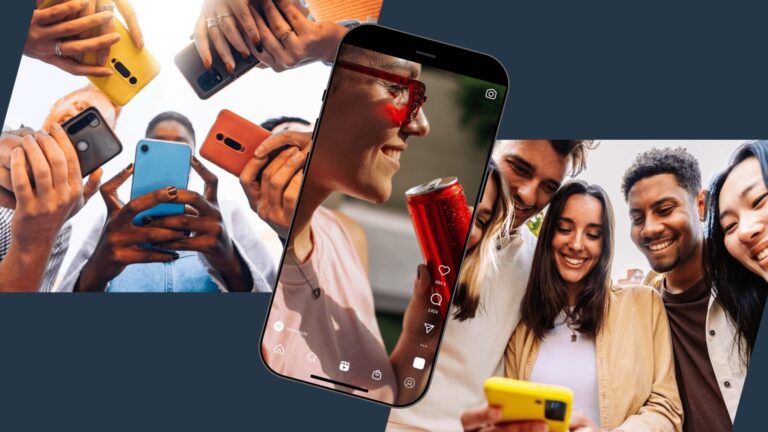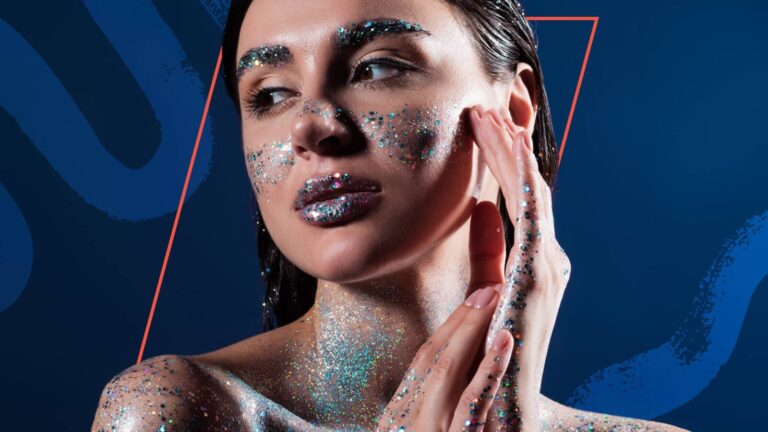People listen to other people; that’s why marketers have tried to generate word-of-mouth, collect social proof, and even incentivize user-generated content to grow brands since time immemorial.
But the rise of Instagram, Twitter, YouTube, and now TikTok and the corresponding ability of non-celebrities to reach broad swaths of strangers and share their thoughts, opinions, and recommendations about everything from Star Wars to software has fundamentally changed the game for brands and younger generations of consumers.
Now, this kind of “person-to-person” exchange of information can be done at scale as a key part of your marketing strategy. But there are two versions of this approach emerging that are distinct and serve different purposes from a media standpoint: influencer marketing and brand-creator partnerships.
Influencer Marketing vs. Creator Partnerships: What’s the difference?
It’s common today to hear the terms “influencer” and “content creator” used interchangeably. While both can lend a brand a level of relatability and cultural relevance that’s much harder to achieve through branded content alone, there are key differences you need to understand to figure out which one is the right fit for your marketing needs.
Let’s start with influencer marketing. The basic definition of an influencer is someone who has cultivated a community by sharing and even showcasing their unique perspective to the world. They are often focused on a particular subject or niche.
That definition can apply to a person or even a publisher (think about blogs developed around a particular value proposition that have become invaluable to certain audiences, and in turn have turned individual authors into influencers in their own right).
Critical to the value of the influencer is their audience. Fans view an influencer as a trusted voice and look to them for inspiration, validation, and entertainment in their area(s) of expertise.
By showcasing how brands and products fit into their daily lives, influencers can tell their story and connect in more relatable ways than a brand itself could accomplish.
Influencer endorsements of a brand, product, or service impact their fandom’s awareness and perception of your brand and/or products and even drive purchase decisions.
Essentially, partnering with an influencer can get your brand some powerful validation and street cred while growing awareness. That has made influencer marketing a very appealing proposition to brands as digital channels have created an ever larger platform for these kinds of native thought leaders.
So let’s turn to creator partnerships. Content creators are individuals who create highly engaging content, without necessarily having a social following of their own to ‘influence.’ Influencers, of course, are often content creators, but an audience isn’t a prerequisite for creator success.
The new focus on creators in particular has been driven by TikTok; while Instagram is built to get people to follow a particular profile, TikTok is an engine that runs on the content itself. The person behind the content is not necessarily the focus. For perspective, a creator could have 50 followers on TikTok but their content can be so engaging that it drives 1M views.
Generally, audience reach and admiration are the key differentiators between influencers and creators. That’s important to keep in mind when it comes to evaluating whether an influencer marketing approach or a creator partnership is the right fit for your business needs.
Think of creator partnerships as a way to approach the production of actual creative and influencer marketing as a strategic media investment.
Creator partnerships don’t require an influencer play. In many cases, this common misconception actually gets in the way because it’s stopping brands from activating creators as an extension of their creative team.
When brands decouple creator content from influencer marketing, they can unlock the power of high-velocity freelance creatives that are native to the platform. These creators can be tasked with producing high-quality assets that feel more organic and authentic to platforms like TikTok than more traditional brand creative.
The benefits of creator content: leveraging creator partnerships to bolster brand creative strategy
The constant need to refresh ad creative and the growing demand for “authentic” content has left many brands with a constant thirst for more assets that can be difficult to quench in-house, both because of bandwidth and often a lack of experience with “scrappier” content styles.
When brands see creator content as a way to bolster their brand creative strategy, they reap some major awards:
- Cultural relevance through the content, perspective, and tonality of the assets
- Engagement with a broader audience still relevant to the brand that core brand creative may not be addressing
- The ability to advertise across platforms where creator content is almost a requirement for entry (we’re looking at you, TikTok)
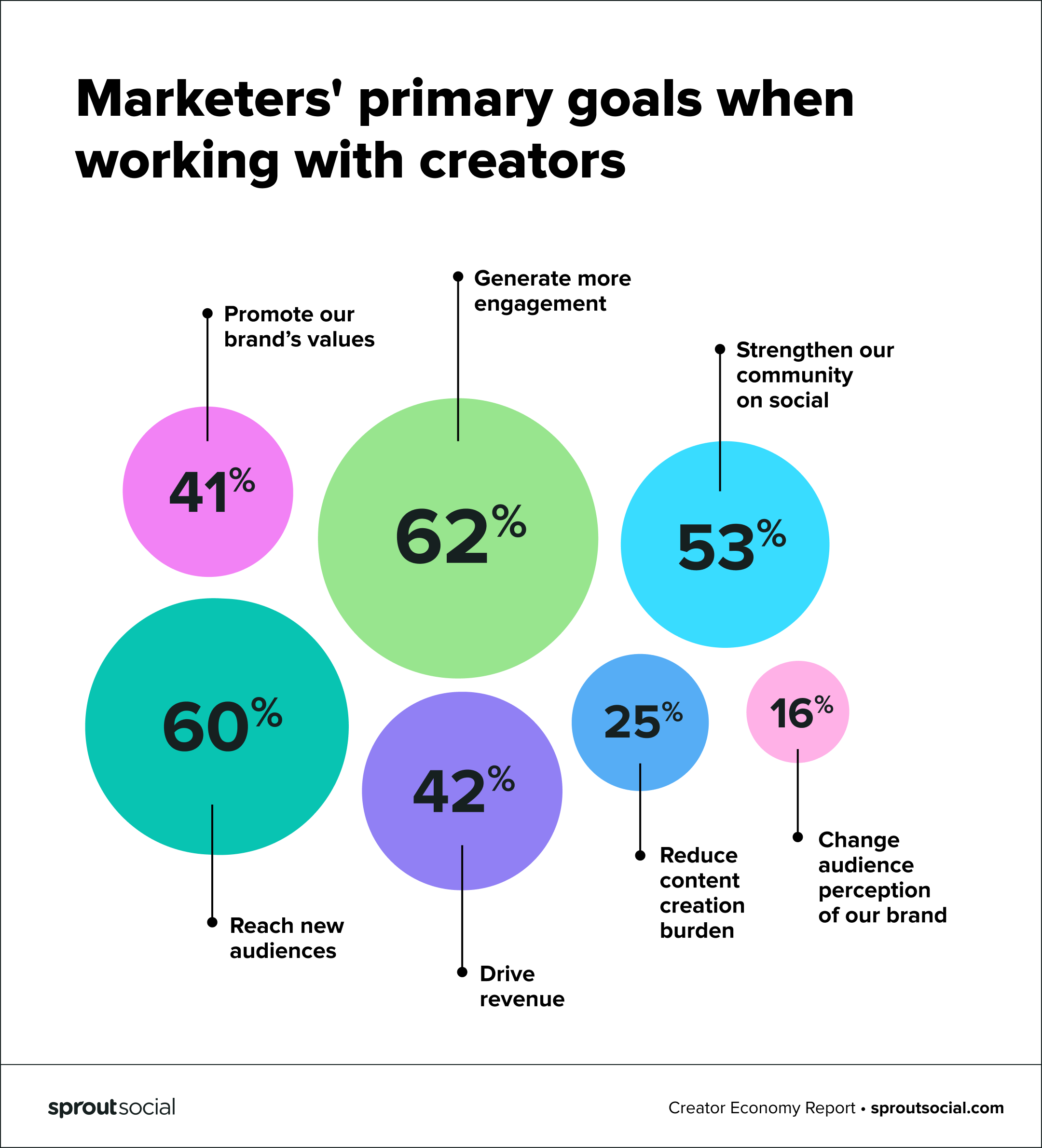
At Brandweek 2022, Marriott’s SVP of Global Brand, Loyalty, and Portfolio Marketing Brian Povinelli described the hotel giant’s approach to creator partnerships. Marriott is currently activating creators on the grandest of scales to bolster the brand’s creative strategy in culturally relevant, diverse, and relatable ways.
“The key to a successful marketing strategy in today’s environment is to stay flexible in your approach and engage agile partners to evolve with rapidly changing consumer behaviors.”
Povinelli pointed to scale and speed as critical additional benefits. Tapping into creators meant that Marriott could produce more than 10 times their typical ad creative volume and get it immediately into the market while maintaining relevancy across a variety of audiences.
Our aggregate agency data supports that full-throated endorsement of creator partnerships. Across clients running creator- and/or influencer-produced assets, we’ve seen a significant performance boost, including:
- 2x higher media engagement rates
- +25% stronger media efficiency
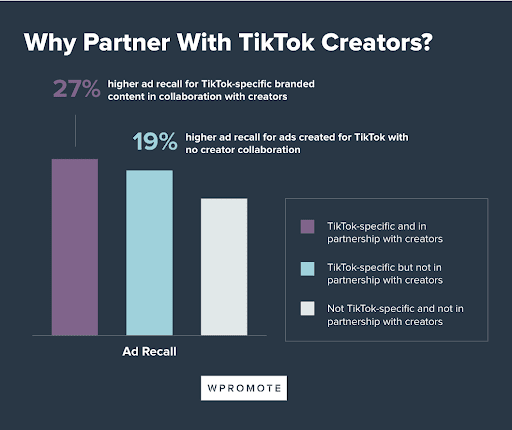
Creators are also getting more flexible with usage rights negotiations, so there’s potential for assets to span environments outside of social, such as OTT or linear TV. The opportunities are there, you just need to find the right creators to partner with (and give them the creative freedom they need to be successful).
The power of influencer marketing: building trustworthy relationships with influencers and their audiences
The superpower of influencers is their credibility among their communities. When brands develop talent partnerships that feel organic to the audience, success follows. The right influencer/brand combination can drive:
- Increased brand awareness
- New audience reach
- New customer acquisition, as influencer testimonials can be the seal of approval needed to overcome a trial barrier
- Brand loyalty
That potential payoff is why influencer marketing has seen such exponential growth in recent years, as evidenced by data from eMarketer, taking up a larger share of the marketing pie even as the share occupied by traditional brand social media has remained basically flat.
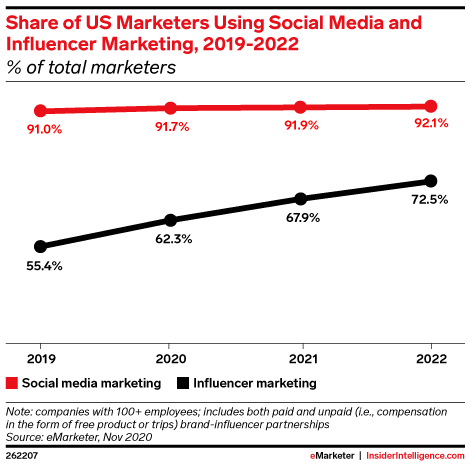
The benefits of influencer marketing for brands generally outweigh the potential risks, particularly if brands establish longer-term partnerships with influencers instead of relying on one-off engagements.
When an influencer has an ongoing relationship with a brand, the accrued effect of repeated brand mentions and usage conveys the deep connection the influencer has with the brand and the role it plays in their life.
Influencer marketing is built on trust; brands need to trust that influencers will prioritize brand safety in their content, and influencers need to maintain trust with their audiences that they’re providing sound information, relevant content, and worthy recommendations.
For brands that have never experimented with influencer marketing, creator content can be the perfect way to dip your toe into this kind of partnership building. Brands can assess the success of these creator-made marketing assets across the media mix to better understand what types of content best resonate with their audience, then take those learnings into the talent curation strategy for an influencer marketing campaign.
If you’re looking to build more marketing collateral that resonates with your audience, a content creator can be the perfect addition to your creative strategy. If you’re looking to build up your audience or create more awareness and consideration for your brand or product, influencer marketing is a strong media play.
Whatever you decide, as long as you align your efforts with your overall goals (and keep measuring performance, of course), you’ll find success.


